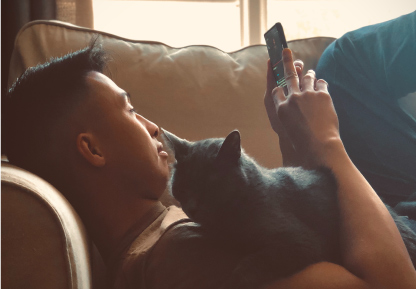There has been increasing national attention on the recent push to legalize sports betting. (Minnesota has yet to pass a bill but look for action this legislative session.) However, another potentially lucrative expansion may be iGaming, defined as all forms of gambling games available through online apps. We were introduced to online gaming unknowingly through social casinos and “free-to-play” games on our phones. In a relatively short period of time (the iPhone came to market in 2007), gaming designers and gambling operators have exploited the tremendous opportunities to gain new customers and revenue through these relatively new venues.
At the Fall 2022 gathering of the Global Gaming Expo (G2E) in Las Vegas, a panel of gaming industry leaders discussed the opportunities afforded by legalizing iGaming. Currently, only six states allow iGaming: Pennsylvania, Michigan, Connecticut, New Jersey, West Virginia and Delaware. Leaders throughout the industry have asserted that the U.S. could gain $30 billion in annual revenue if iGaming were legalized in 42 states with commercial and/or tribal casinos and mobile sports betting. Some leaders expressed that iGaming would be quite competitive with commercial brick and mortar gambling. So, why aren’t more states jumping on this potential windfall?
Four reasons were cited by the panel.
1. Most states experienced a budget windfall due to COVID federal payments, reducing the need for additional revenue.
2. Lawmakers are concerned that adding iGaming will lower land-based revenue and cost jobs.
3. The risk that iGaming could lead to more gambling addiction.
4. iGaming doesn’t appear to have the same consumer interest as sports betting.
In addition to these four reasons, the panelists discussed the need for non-industry leaders to champion the cause. The tsunami-like approval by 35 states to legalize sports betting after the U.S. Supreme Court’s decision to overturn the ban in May 2018 was attributable in part to the number of consumers who were in favor of its passage. Currently, there doesn’t appear to be an equivalent level of enthusiasm for iGaming. In hindsight, the industry is thinking it may have moved too quickly to get sports betting through, when it should have paired the two in legislation, taking advantage of the pent-up demand for sports betting. Nor did it anticipate the level of federal COVID money going to the states, which has created at least a pause in lawmakers’ thinking about the benefits of expanding gambling again. Some lawmakers are considering that the expansion of slot machines and table games on a phone 24/7 may contribute to more gambling problems than sports betting.
(While it’s still early in the cycle and not a lot of data has been collected to measure the impacts of sports betting and iGaming, there are real concerns being raised about the level of advertising for sports betting and its influence over consumers, whether adequate consumer protections are in place in states that have passed sports betting and/or iGaming, and what states’ responses will be if addiction rates rise while minimal funds were set aside to address the issues.)
MNAPG will be watching this carefully and will continue to keep you informed of changes in the field.

